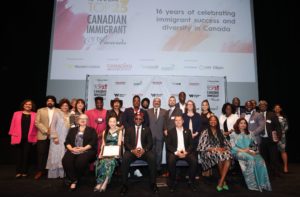In-group and Out-group Dynamics in Canadian Immigration

Priya is a Regulated Canadian Immigration Consultant (RCIC), ponders the impact of in-group and out-group dynamics on Canada’s immigration policies. She reflects on how these social concepts shape Canadians’ expectations. This, in turn, influences government decisions and policy development. Priya understands the importance of policies that grasp these dynamics. They must create a welcoming society while aligning with Canada’s values and priorities.
Understanding In-Group and Out-Group Dynamics
When we delve into the impact of social dynamics on Canadian immigration policies, it’s crucial to define the core concepts of in-group and out-group clearly. These terms illuminate how social categorizations shape perceptions and behaviours toward diverse groups.
In-Group Dynamics
The in-group comprises individuals with whom we share a deep sense of identity. This group embodies specific characteristics, beliefs, or values that resonate with our own. Consequently, we often extend our empathy and support to in-group members, which fosters a strong sense of belonging and loyalty. Importantly, this dynamic can significantly influence perceptions of policies and determine which groups receive priority.
In the context of Canadian immigration, the in-group consists of Canadian citizens and permanent residents. However, there are times when the in-group consists of citizens only.
Out-Group Dynamics
In contrast, the out-group includes those we perceive as different or separate from ourselves. This separation can lead to biases and stereotypes, critically affecting the crafting and implementation of policies. Therefore, recognizing out-group dynamics is vital for creating inclusive policies. Such policies must account for the needs and perspectives of all groups, ensuring that the immigration framework is equitable and considers those with whom policymakers or the public might not immediately identify.
In the context of Canadian immigration, the out-group is all foreign nationals. Specifically, we quickly identify refugee claimants, international students, and foreign workers as out-groups.
The Hidden Cost of In-Group Dynamics in Canada
While Canada faces over $5 billion in annual losses due to tax evasion by its citizens and permanent residents, 5% of Canadians (i.e., about 2,000,000 people) rely on social assistance, revealing an additional layer of complexity. If we could address these issues effectively, we could address some of the significant problems we face, such as the housing crisis. However, the cause of these problems is mostly our in-group, and we respect them. After all, we have the out-group to blame.
Now, let’s turn our attention to an out-group. In the first nine months of 2023, RPD received 93,040 refugee claims. Almost all refugees receive work permits in Canada and are expected to support themselves with little or no social assistance. Regardless, even if they extensively use social assistance, the 2,000,000 Canadians outnumber them. However, somehow, they are a burden on our social services?!
One could posit that the missing $5,000,000,000 in tax revenue could significantly address the housing crisis in Canada. However, our focus is on the international students who are an out-group. Therefore, we cap their intake to manage the housing market. However, at least one analyst believes this move won’t have a meaningful positive effect.
Embracing Diversity: Navigating the Impacts of Immigration
Immigration undeniably shapes our society, bringing positive and negative effects. While it’s crucial to acknowledge the challenges it presents, understanding the concepts of in-group and out-group dynamics can help us evaluate these matters without bias. An impartial viewpoint allows for a more inclusive approach, encouraging individuals and the government to refine their strategies towards fostering a healthier society and economy. By promoting awareness and adopting an unbiased stance, we can collectively work towards optimizing our approach to immigration, ensuring it benefits all facets of our community.
If you’re looking for a speaker who can provide deep insights into cultural intelligence, Diversity, Equity, and Inclusion (DEI) or immigration, consider hiring me. With a Master of Arts in Psychology, a Master of Laws from Osgoode Hall Law School, and a certificate in DEI from Cambridge University, I bring a well-rounded and informed perspective to these crucial topics. My expertise can help enlighten and inspire your audience, guiding them toward more inclusive practices and a better understanding of immigration’s complexities. Let’s work together to create a more inclusive and informed society.
Would you please fill out our free assessment form if you wish to visit or move to Canada? We will review it for free, but we will contact you only if we find an opportunity for you. Alternatively, you may book a consultation session. Consultation sessions are not free, but you will receive formal immigration advice from a licensed practitioner.
Al ParsaiAl Parsai, LLM, MA, RCIC-IRB
Regulated Canadian Immigration Consultant
Adjunct Professor – Queen’s University – Faculty of Law
Ashton College Instructor – Immigration Consulting
Author – 88 Tips on Immigration to Canada
Fill our Free Canada Immigration Assessment Form in your language!
 ‘ Credit:
‘ Credit:Original content by www.settler.ca – “In-Group and Out-Group Dynamics in Canadian Immigration”
Read the full article at https://www.settler.ca/english/in-group-and-out-group-dynamics-in-canadian-immigration/






